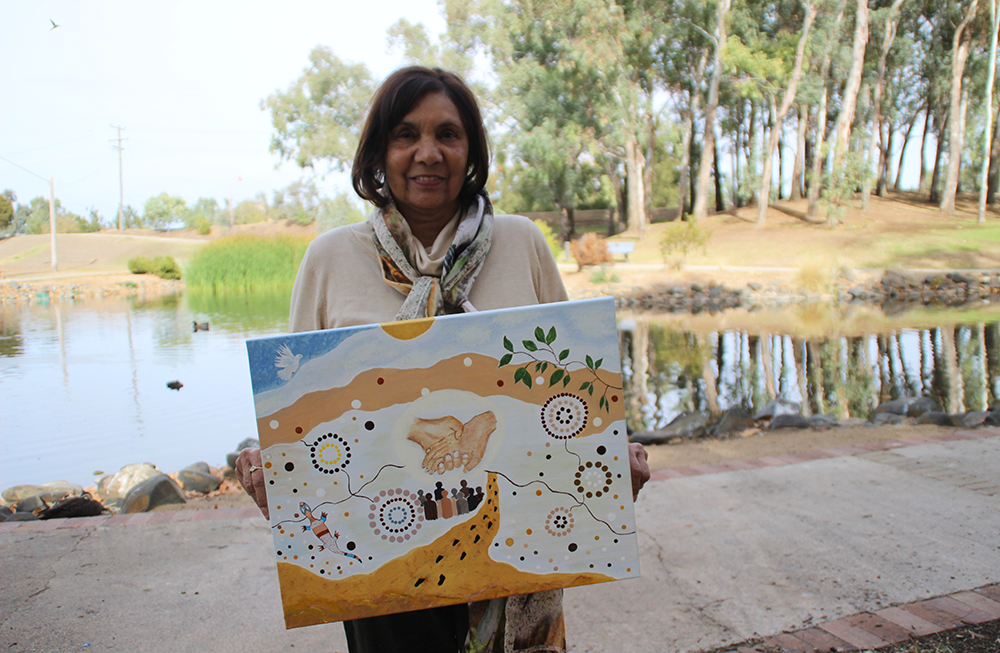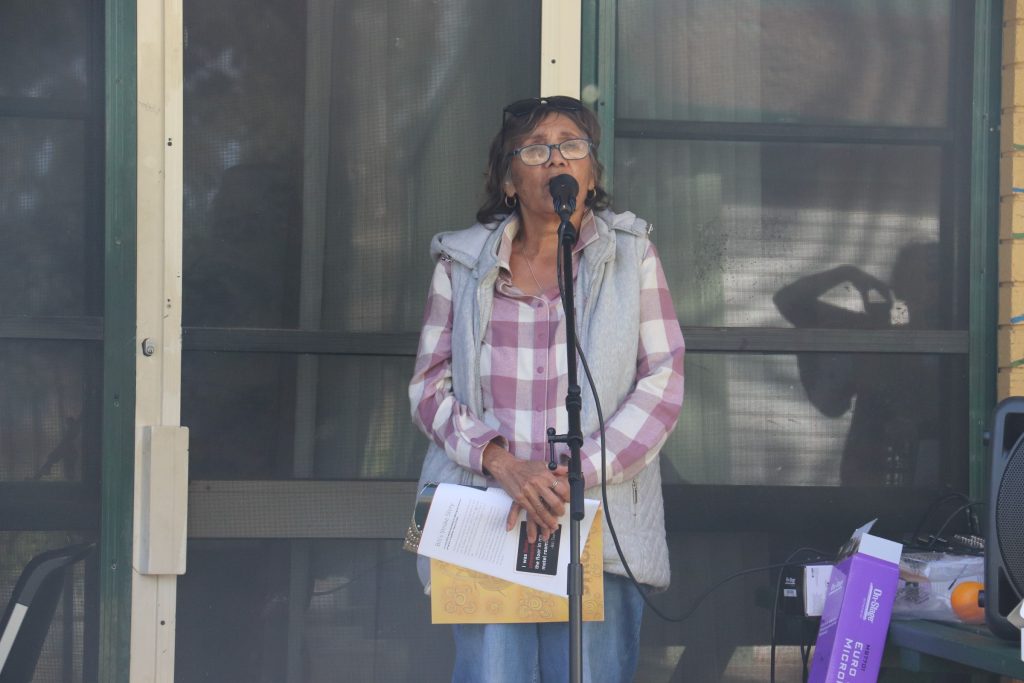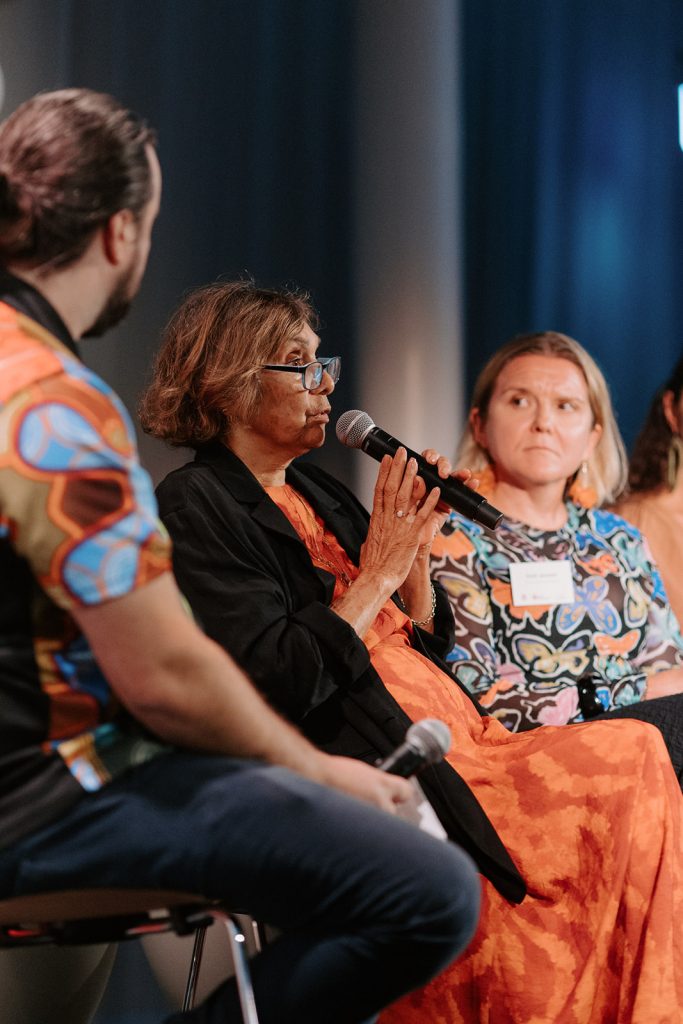Helping People In Community After Stroke
Aunty Audrey Trindall, Proud Gomeroi Woman, Research Assistant For The Yarning Up After Stroke Project

Aunty Audrey has worked in Aboriginal Health in NSW for over 35 years in different health education roles out in community. “Having that one-on-one contact is pivotal to providing culturally appropriate healthcare,” she explains. “I spent 10 years as a health co-ordinator with the Elders Program in the South Western Sydney Health District. My role was to facilitate art and craft activities while engaging with the elders’ group and guest speakers who gave talks about topics such as heart disease and diabetes. I also attended outings with the elders’ group and along with the health nurse, provided support and information about health priorities such as immunisations and screening for health conditions. People would often say how much it helped to have me there, as they felt comfortable and safe with me. For nine years I then worked for a mums and bubs program, called Building Strong Foundations at the Tamworth Community Health Service. With a child and family nurse, I visited mums in community and yarned about the health of their little ones, also providing health education on topics such as breast-feeding and how to quit smoking. We also conducted family days to celebrate events like NAIDOC week, so that people would enjoy a day out in community with food, music and a yarn, while we also provided them with health handouts and information.”

Aunty Audrey is currently involved with the Yarning Up After Stroke project in collaboration with her community and Hunter New England Local Health District clinical researchers, Dr Heidi Janssen and Professor Chris Levi. She has helped with the co-design of the self-management tool which aims to enable Aboriginal stroke survivors determine their goals for stroke recovery. She is currently working with her community and researchers to pilot the program with the people living on Gomeroi/Kamilaroi/Gamilaroi Lands, which encompasses the regional areas of Tamworth and Quirindi in north-eastern New South Wales. Yarning Up After Stroke was inspired by a New Zealand tool called ‘Take Charge’. Yarning is an Aboriginal practice that is a culturally respectful, conversational way to learn, listen, share and receive information and also identify the health needs of Aboriginal communities. Yarning has been pivotal to understanding what community want and need and see as the solutions to ensure culturally responsive stroke recovery care that strengthens spirit and well-being after stroke.
“I had a stroke in 2012, so in this role I am sharing my lived experience of stroke, which also involves being a positive role model and sharing the different strategies that helped me recover from a stroke,” she explains. “I was lucky that I didn’t need speech therapy, but I did need some physical rehab which involved a stroke exercise program that helped me to regain my strength and balance. Going in the hydro pool with other participants was a lot of fun. The program offered a space where I felt supported and over time, it helped me regain my confidence too. Setting myself the goal of returning to work also really helped motivate me to keep going. Though I felt impatient and wanted my recovery to go faster, I learned that I had to pace myself. So, when I did return to work, I first went back a few hours a day on a couple of days a week.”

Evidence is increasingly showing enormous benefits from people with lived experience supporting others in their health challenges and recovery. “In our team, everyone works equally together and though I don’t have a university degree, it’s great that my lived experience is respected and considered very valuable,” Aunty Audrey says. “Discussing lived experience is powerful. It helps people feel more comfortable about opening up and sharing what their issues are.”
“Spirituality, links to land and belonging to land and to the mob that come from that land are at the core of Aboriginal being and identity,” Aunty Audrey explains. “We have 16 Aboriginal nations in NSW, each with their own traditions and cultural beliefs, so there is great richness and diversity of culture and many approaches to healing and ‘medicine’. This means that a ‘one size fits all’ approach may not work in all situations and health workers should collaborate with each person and their family to ask what their cultural and spiritual needs are.”
At the CVRN showcase and awards evening, Indigenous health leaders discussed the life-changing impacts and outcomes of their outstanding ‘ in-community’ work. Learn more.
Updated 4 months ago